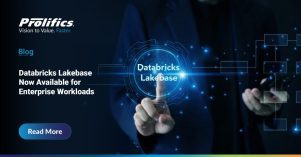What is Robotic Process Automation (RPA)?
Robotic Process Automation (RPA) is a technology that uses software robots (bots) to automate repetitive, rule-based tasks traditionally performed by human workers. These tasks typically involve:
- Interacting with digital systems
- Performing data entry
- Processing transactions
- Managing workflows
- Responding to customer queries
Key benefits of RPA include:
- Seamlessly bridging legacy systems
- Effortlessly closing integration gaps
- Integrating legacy systems without altering existing technology investments
According to the Deloitte Global RPA Survey, RPA continues to exceed expectations across multiple dimensions:
- Improved compliance: 92%
- Improved quality/accuracy: 90%
- Improved productivity: 86%
- Cost reduction: 59%
RPA solutions are a key driver of business process automation. They are easy to implement and scale, making them attractive across industries. Businesses leverage RPA to:
- Streamline processes
- Reduce costs
- Enhance productivity
- Free human workers for strategic activities
Industries adopting RPA include banking, healthcare, finance, manufacturing, and retail, aiming to reduce operational costs, improve accuracy, and increase efficiency.
Emerging RPA Trends to Watch in 2025
RPA technology is evolving rapidly. Here are the key trends shaping the future of automation:
Hyper Automation
Hyper Automation extends RPA by integrating Artificial Intelligence (AI), Machine Learning (ML), and cognitive automation. Unlike traditional RPA that automates rule-based tasks, hyper-automation handles complex decision-making processes. It combines tools, platforms, and techniques to automate as much of a business as possible, driving greater efficiency and innovation.
Natural Language Processing (NLP)
NLP enables machines to understand, interpret, and generate human language. By integrating NLP with RPA, businesses can automate processes involving unstructured data, such as:
- Customer emails
- Documents
- Chat messages
This allows automation of tasks that previously required human interpretation of text, voice commands, and natural language inputs.
Low-Code and No-Code RPA
Low-code and no-code platforms empower users with little or no programming knowledge to build and deploy RPA bots. Benefits include:
- Democratizing automation development
- Enabling collaboration between business users, subject matter experts, and IT teams
- Scaling automation efficiently
Collaborative RPA
Also called “attended automation,” collaborative RPA combines human workers and bots to perform tasks together. While traditional RPA works independently (unattended), collaborative RPA assists employees by automating parts of their workflow in real-time, allowing humans to focus on higher-value tasks.
Cloud-Based RPA Solutions
Cloud-based RPA is increasingly popular due to scalability, flexibility, and cost-effectiveness. Advantages include:
- Reduced infrastructure investment
- Faster deployment
- Remote collaboration support
Industry-Specific RPA
Industry-specific RPA solutions address the unique needs and regulatory requirements of various sectors, providing precise automation in industries like finance, healthcare, and manufacturing.
How Can Prolifics Help Implement RPA in Business Processes?
Prolifics offers comprehensive services to implement RPA successfully, helping businesses streamline processes, reduce errors, and enhance efficiency. Key solutions include:
Process Mining
Prolifics’ process mining solutions allow organizations to analyze workflows, uncover inefficiencies, and optimize business processes. By visualizing processes clearly, companies can enhance operational efficiency and drive seamless performance.
AI-Powered Automation
AI-Powered Automation
In today’s challenging landscape, businesses are under increasing pressure to optimize and streamline their operations. Many are turning to the powerful combination of robotic process automation and artificial intelligence (AI) to enhance efficiency and deliver superior customer experiences.
AI-powered automation is a transformative tool for future-ready enterprises, enabling them to navigate the complexities of an increasingly digital and dynamic environment.
Combining RPA with AI helps businesses:
- Improve operational efficiency
- Deliver superior customer experiences
- Make informed decisions
- Unlock new productivity and innovation levels
Digital Workers
Digital workers collaborate with humans to fully automate processes using AI, ML, RPA, and analytics, improving productivity and augmenting human efforts.
Conclusion
Prolifics empowers businesses to automate manual and repetitive tasks through RPA and AI-powered automation, helping organizations:
- Transform operations
- Detect inefficiencies
- Enable workflow automation
- Manage unstructured content effectively
- Capture critical information
- Make informed decisions
By leveraging process mining, AI, and automation, businesses can improve efficiency, reduce costs, and predict outcomes with precision.
Ready to transform your business with RPA? Partner with Prolifics to unlock the full potential of business automation and drive your enterprise toward a smarter, more agile future.




